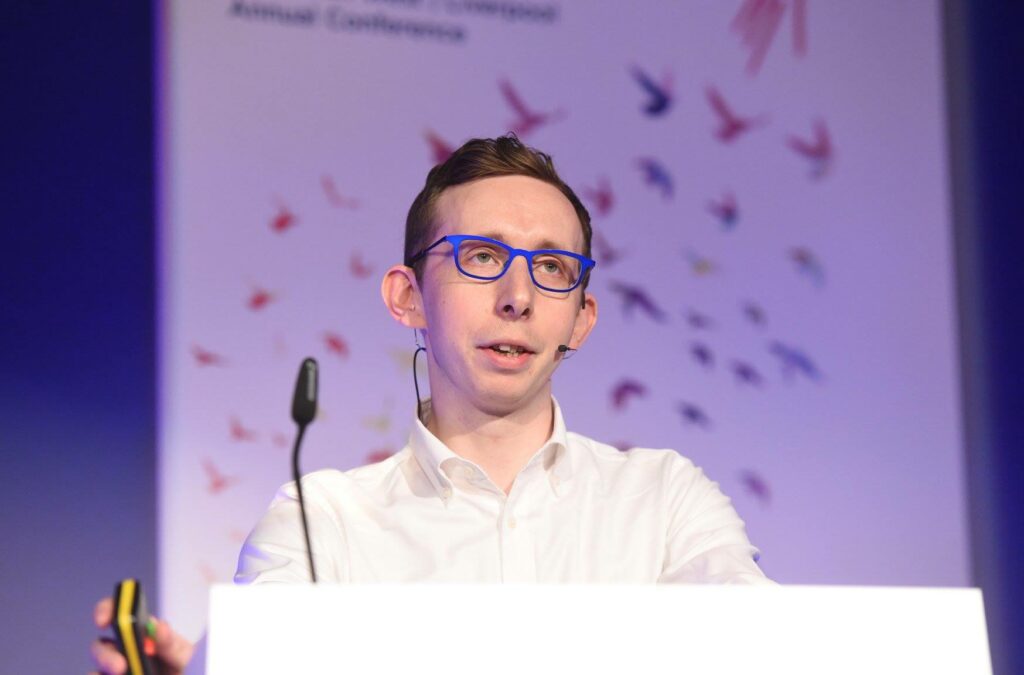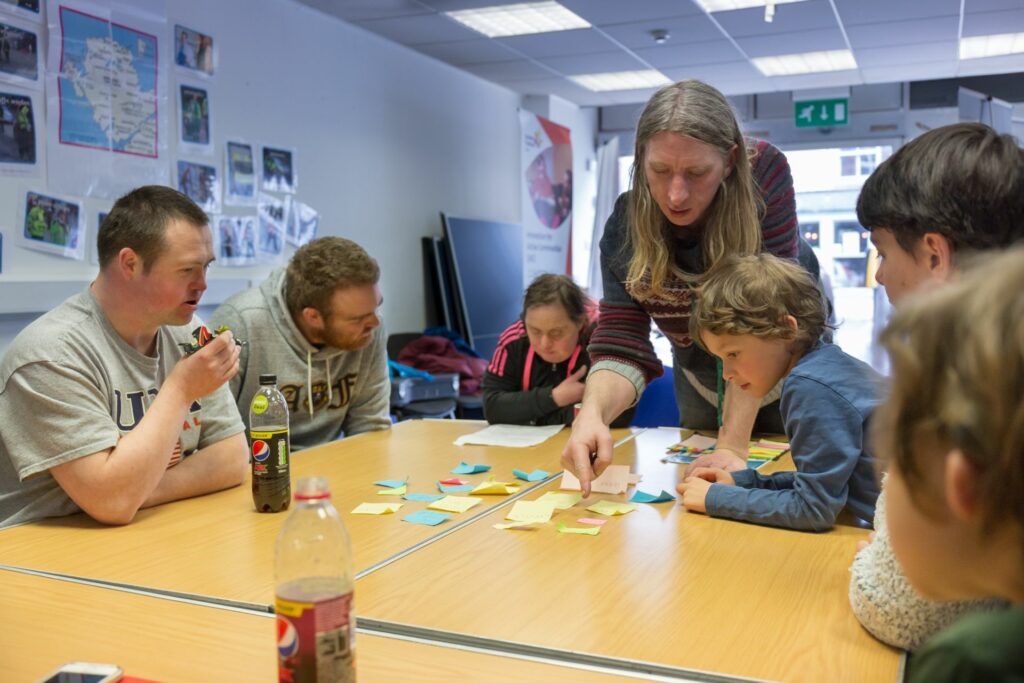Changing charity for the better

Over recent years, technology has dramatically altered the business sphere. Companies exploring and realising the potential of tech have been able to imagine a very different future, one where new tools can positively impact customers and employees – and boost profits.
But in the charity sector, the landscape has been very different. Historically risk-averse and with precious resources poured almost exclusively into their services, charities have largely struggled to embrace digital. The 2020 Charity Digital Skills Report, commissioned by Catalyst, Skills Platform and Zoe Amar Digital and published last October, found that more than half of charities in the United Kingdom don’t even have in place a digital strategy.
It is a problem that Matt Haworth has made his life’s work to solve. As a teenager, Haworth was obsessed with a nascent system called “the internet”. You might have heard of it. At the age of 20 he started freelancing as a tech consultant. Now he is CEO of Reason Digital, an organisation he co-founded to help charities and other socially progressive organisations transform for the digital age.
“Charities have found themselves behind the corporate world when it comes to digital, and that’s because of a perfect mix of difficult circumstances,” Haworth tells Tech For Good. “I’m a trustee of a couple of charities, so I know how difficult it is to protect resources. It can be nerve-wracking to invest in anything that feels like a risk. Digital at one point felt like a risk. I would say it’s not a risk anymore but that mindset persists.

“Then you’ve got the makeup of the charity sector at a senior level. We still have a relative lack of diversity around digital skills and capacity. And also, culture. We criticise charities too much for trying new things, for investing in things, for taking risk – and those are all things that we praise businesses for.”
Yet Haworth sees light at the end of the tunnel. Firstly, for over a decade Reason Digital has architected some groundbreaking solutions and collaborated with major charities like Save The Children, Macmillan Cancer Support and Parkinson’s UK. But at a wider level, he believes the COVID-19 pandemic has in some ways forced the hand of many charities. Now they simply have to get moving when it comes to tech.
“At the start of the pandemic there was nervousness in the sector because income from mass fundraising events was just going to go,” Haworth says. “The reaction was to really draw the pursestrings in and manage that, but then we saw demand rising from those who said: ‘we need to keep providing services, we have a lot of vulnerable people, how can we go about doing that with these rules and restrictions?’ And really one of the only ways was digital.”
This has resulted in a period of rapid change and quick learning for many charities. The Charity Digital Skills Report concluded that last year was “pivotal” to the sector’s future. From Haworth’s experience, those that had been one step ahead with their tech plans before COVID-19 struck were able to be more resilient in the face of its challenges.
Charities can use technology in a multitude of different ways. The large majority are excellent at utilising web-based tech to promote their projects and to run fundraising campaigns. But Howarth believes the next great leap needs to be to use digital to optimise their service delivery.
Most of Reason Digital’s client work has been around helping those who may have been behind the curve to adapt their services for remote, online charity. A unique example he shares is from its collaboration with the Scout Association in the UK.
“Previously we’ve worked with the Scout Association on systems that help its leaders plan their scouting activities to make sure children get their badges and take advantage of the curriculum scouts can offer. Obviously that changed dramatically during lockdown, so we worked on a way to do scouting on the web, sharing activities online and things like that. It’s the same but different.

“Overall it’s a long journey but COVID-19 has accelerated the digital transformation of charities. No matter where they are on that curve, everyone has got further down.”
Another case study Haworth highlights is Reason Digital’s work with AgeUK. He believes its programme to blend current technologies with artificial intelligence to optimise its “Call In Time” befriending service is the perfect example of a digital investment that enabled delivery at scale during COVID-19.
The system automatically places calls on a telephone network after matching volunteer befrienders with isolated and lonely older people. Robots then listen to the calls and are able to flag conversations that may have shown safeguarding risks. The technology now enables AgeUK to process more than 1,000 calls each week.
“There were something like 1.3 million chronically isolated older people in the UK before COVID-19, so there was already an epidemic of loneliness, and COVID-19’s made it so much worse,” says Haworth. “So our team has been flat out on improving and scaling up that system. The fact that AgeUK has embraced that technology is really quite cool.”
One thing Haworth believes would accelerate similar innovation at a macro level is collaboration between charities. In fact, he calls collaboration the “sleeping giant” of the sector.
In 2019, Reason Digital announced a first-of-its-kind partnership with four charities – Parkinson’s UK, the Stroke Association, Muscular Dystrophy UK and the MS Society – to build a “Digital Health Assistant”. The machine learning-based tool is designed to offer a tailored coaching service to those suffering from long-term health conditions. All four charities are now using the solution at scale but Haworth believes none of them would have been able to develop the Digital Health Assistant on their own because of a lack of budget and talent.
“Overall it’s a long journey but COVID-19 has accelerated the digital transformation of charities. No matter where they are on that curve, everyone has got further down”
“There are a lot of practical issues, particularly around technology, but collaboration is where it’s at,” says Haworth. “Private companies have the profit motive, that’s their secret weapon, but what charities have is that everybody fundamentally wants the same thing.
“There are bits and pieces happening, and you’ve got bodies like Catalyst, which has drawn together a lot of funders and provides funding and support to the charity sector around digital. It is effectively a cross-sector collaboration to accelerate the adoption of social technology. So we are seeing things, but is it enough? Absolutely not. There needs to be way more. I think we’ve started to uncover what some of the barriers are through the Digital Health Assistant project, so they are surmountable.”
What does Haworth believe a tech-enabled charity sector might look like in the future? He sees it as ultimately empowering the individuals who have been motivated to work in an area where they can deliver positive change to people. Too often, he says, charity employees are bogged down by menial tasks.
“There is so much human time and human potential in the charity sector poured into doing admin, dealing with basic questions that could easily be answered in a more automated way. It’s not about automating everything, it’s not about turning everything into robots. It’s about freeing up human potential.”
Haworth is a former UK Digital Entrepreneur of the Year but prefers any praise to go the way of his team. Reason Digital is expanding quickly and boasts a range of awards for its work, and Haworth himself is engaging more directly with charities to keep himself close to the issues that matter as his business grows.
Does he still have the fire inside to continue his mission, the same fire that as a young man made him rail against the idea of “getting out of bed every morning to make some rich old white guy slightly richer”? The answer is “yes”, without any shadow of doubt.
“There is a lifetime’s work here, in terms of the amount of time it’s going to take to assist the sector transforming,” he says. “I’m very happy and proud to play my part in that, so I can’t see that changing. I love what I do and I love the change that we bring about.”



